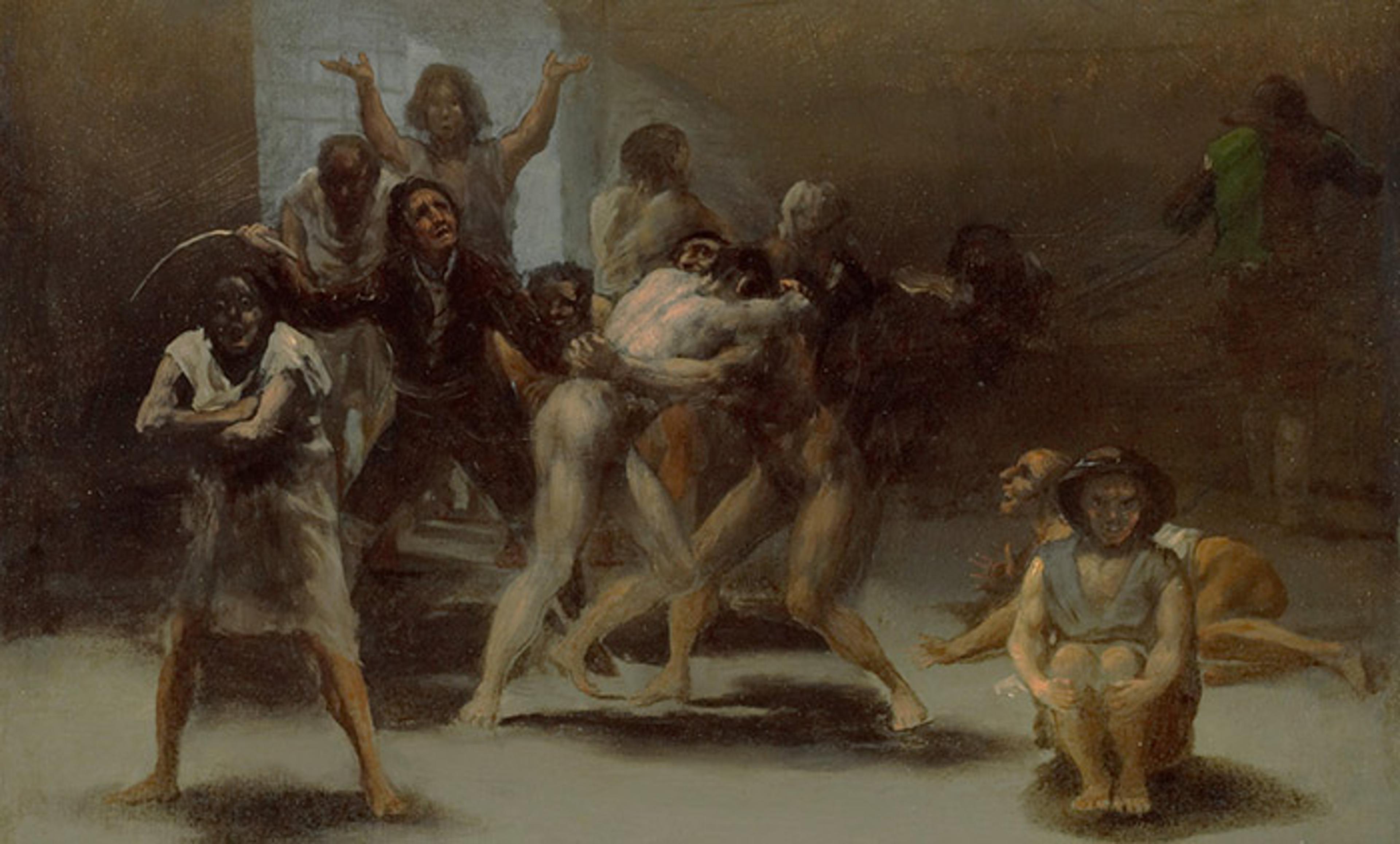Neither half-full nor half-empty. Courtesy Wikipedia
Metaphysics is the attempt to understand how existence works by examining the building blocks of reality, the distinctions between mental and physical entities, and the fundamental questions of being and reality. But metaphysics is not only an arcane branch of philosophy: human beings use metaphysical assumptions to navigate the world. Assumptions about what exists and what is fundamental exert a powerful influence on our lives. Indeed, the less aware we are of our metaphysical assumptions, the more we are subject to them.
Western metaphysics tends to rely on the paradigm of substances. We often see the world as a world of things, composed of atomic molecules, natural kinds, galaxies. Objects are the paradigmatic mode of existence, the basic building blocks of the Universe. What exists exists as an object. That is to say, things are of a certain kind, they have some specific qualities and well-defined spatial and temporal limits. For instance: Fido is my dog, he is grey, and was born one year ago. (It’s worth noting that such a simple statement will give rise to a litany of metaphysical disputes within substance metaphysics: realists believe that universals, such as the natural kind ‘dogs’, exist while nominalists believe them to be only intellectual abstractions.)
Though substance metaphysics seems to undergird Western ‘common sense’, I think it is wrong. To see this, consider the cliché about the glass of water: is it half-empty or half-full? The question assumes a static arrangement of things serving as a basis for either an optimistic or a pessimistic interpretation. One can engage in interminable disputes about the correct description of the physical set-up, or about the legitimacy of the psychological evaluations. But what if the isolated frame ‘a glass of water’ fails to give the relevant information? Anyone would prefer an emptier glass that is getting full to a fuller one getting empty. Any analysis lacking information about change misses the point, which is just what substance metaphysics is missing. Process philosophers, meanwhile, think we should go beyond looking at the world as a set of static unrelated items, and instead examine the processes that make up the world. Processes, not objects, are fundamental.
The pre-Socratic Greek philosopher Heraclitus provides the most famous image of process metaphysics. ‘It is not possible,’ he says, ‘to step twice into the same river’ – because existence depends on change; the river you step into a second time is changed from the river you stepped into originally (and you have changed in the interval, too). And while substance philosophers will tend to search for the smallest constituent objects in order to locate reality’s most fundamental building blocks, process philosophers think this is insufficient. So do modern physicists. Electrons are now understood as bundles of energy in a field, and quantum vacuum fluctuations prove that there are fields without bundles but no bundles without fields. Things seem to be reducible to processes – and not the reverse. (As the philosopher Alfred North Whitehead put it, we should think about ‘occurrences’ instead of ‘things’.)
Change poses a recurring problem for substance metaphysics. Universals have traditionally been a popular way to circumvent it. These static entities are difficult to define precisely, but can be thought of as ‘hyper-things’ that are instantiated in many different particular things. A universal is the thing that particulars have in common, such as types, kinds and relations. Universals are essentially different from particulars: Aristotle, for instance, argued that particulars – such as Fido my dog – are subject to generation and corruption, while species – the universal – are eternal. This particular example provides another instance in which science seems to favour process metaphysics. Thanks to the theory of evolution, the Aristotelian view that species are unchanging and eternal was proven wrong. Species evolve. They change. Dogs, after all, evolved from wolves to constitute a whole different kind. Once again, we’re better off using the paradigm of change rather than substance.
Process metaphysics leads to a re-evaluation of other important philosophical notions. Consider identity. To explain why things change without losing their identity, substance philosophers need to posit some underlying core – an essence –that remains the same throughout change. It is not easy to pin down what this core might be, as the paradox of Theseus’ ship illustrates. A ship goes on a long voyage and requires significant repairs: new planks to replace the old, fresh oars to replace the decayed, and so on, until, by the time the ship returns to port, there is not one single piece that belonged to the ship when it departed. Is this the same ship, even though materially it is completely different? For substance philosophers, this is something of a paradox; for process philosophers, this is a necessary part of identity. Of course it is the same ship. Identity ceases to be a static equivalence of a thing with itself. After all, without the repairs, the ship would have lost its functionality. Instead, as the German philosopher Nicholas Rescher argues in Ideas in Process (2009), identity just is a programmatic development. That is, the identity of a process is the structural identity of its programme. Other things being equal, every puppy will turn out to be a dog. (This programme need not be thought of as deterministic. The interactions between processes, Rescher argues, open room for variations.)
Processes are not the mere intervals between two different states of affairs or two objects, as the paradox of the heap exemplifies: take a heap of sand and remove one grain. It remains a heap; one grain doesn’t make a difference. But if you repeat the subtraction enough times, eventually there will be just one grain. Clearly, this isn’t a heap. Where did it become a non-heap? By looking at the process, and not the end-states of affairs, you’ll realise the impossibility of pinpointing the boundary between heap and non-heap. (Similarly, no individual was the exact turning point between wolves and dogs.) At the very least, this gives us a warning about the unnoticed abstraction operating on our division of natural kinds. Process philosophers such as Henri Bergson stop at this negative conclusion, believing that processes cannot be known but only experienced. Regardless, as the Danish philosopher Johanna Seibt notes, it might just be the case that focusing on the process requires a whole new perspective.
Looking at the world as a manifold of interconnected processes has scientific and philosophical advantages, but there are more prosaic benefits too. Process philosophy invites us to look at longer stretches of time, blurred boundaries and connected relations. Identity as a programmatic – but not deterministic – process welcomes innovation through small, recurring changes. Under these metaphysical assumptions, a meaningful life is less about finding your ‘real’ self than expanding its boundaries.






